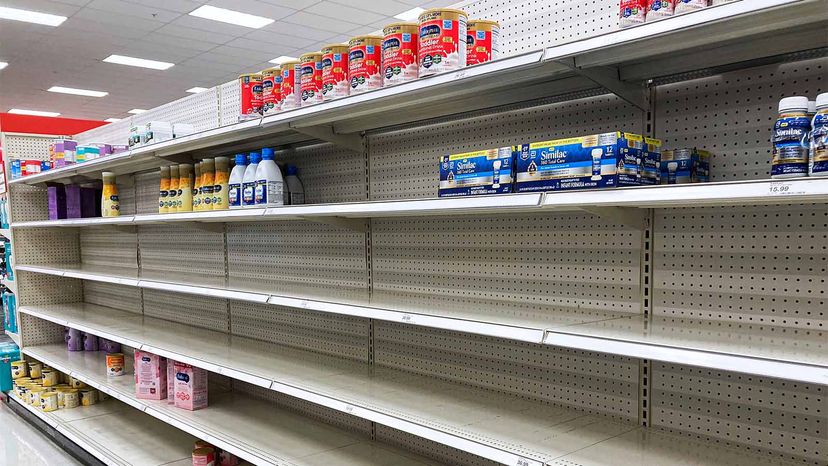
The infant formula shortage in the U.S. came to a head this spring as a result of ongoing supply chain disruptions — issues outside the infant formula production industry — combined with a recall of several major brands of powdered formula. All of this was further exacerbated because many parents stockpiled powdered formula during the COVID-19 pandemic.
Abbott Nutrition recalled several brands of its powdered formula and shut down its Sturgis, Michigan, production facility when federal officials investigating four babies with bacterial infections (two of whom died) consumed products made at the facility. Since Abbott is one of the companies producing most of the U.S. formula supply, the recall took much of the formula inventory. In some states, between 40 and 50 percent of infant formula products were pulled from shelves.
Advertisement
President Joe Biden announced this week that the federal government is working with manufacturers to increase production of formula and help families access existing stock. But hungry babies don't care about supply chains, inventory and price gouging; they just want to be fed. And their parents want to feed them. They also have questions.
Can I just add a little more water to make the formula last a little longer? Is it possible to make my own formula? If so, what's the recipe? Some moms have even attempted to start breastfeeding their babies again.
We checked in with Dr. Bob Shelley, associate dean of student affairs and director of admissions on the Savannah campus of Mercer University School of Medicine. Shelley is also a pediatrician by training who practiced in Savannah from 1986 until 2015. Like any good doctor, he is extremely sympathetic to the situation parents find themselves in and encourages them to seek the advice of their pediatrician or health care provider.
Advertisement


